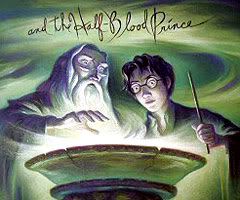
I came accross a very interesting post from Dave Armstrong's weblog
Cor ad cor loquitur: "On the Ethics of Replication of Music, Books, Movies, Software, Etc." It's opened my eyes to some things I never considered before. Perhaps it will for you as well. And if it doesn't, well, I hope you'll say why, or what's wrong with it . . .
============================================
The following is based on an actual dialogue I had with an atheist friend, two years ago, over the ethics of replication. The original context was a discussion of software. It then branched out into a larger discussion. I've added a few clarifying additions here and there.--------------------------------------------
Is it "stealing" to buy a used record or CD? I don't think so. Is it stealing to rent a video at
Blockbuster rather than buy one or go to the theatre? No. Or to tape something off the TV rather than buying the video for $29.95? Or to buy a used book rather than a new one? No to all, in my opinion. I think the ethics depends (largely, but not solely) on whether someone was going to buy a product in the first place. People are taping things on VCR's and tape recorders and now on CD's from the Internet all the time (I use Napster -- which is perfectly legal and determined by courts to not be a violation of copyright law --, for $9.95 a month). If this is massively immoral and unethical, then why do VCR's and tape recorders and CD burners exist in the first place?
The ethics of software is confusing because most of these things are available for free at some point. Two years ago, I needed Word 97 in order to send in the manuscript of my first book. I couldn't afford to buy it new and I wouldn't have, anyway. So is borrowing it from someone else who wanted to enable me to be able to send in my manuscript "stealing"? I don't see that it is. Now, it's true that (like most people) I didn't read the license or whatever. I just knew that I wasn't able to buy the software, so that Microsoft wasn't being deprived of my contribution to their profits. I acknowledge that there is some room for discussion here but I'm not convinced that any of this is "stealing," given the fact that everyone is reproducing stuff all the time, whether audio, video, or software. I think it is a hard case to make, that no one can make a tape of a record or of a show on TV. What are we supposed to do with VCR's and DVD player / recorders, and tape recorders and (now) iPods?
The only sense I can make of this is whether a person would have, and was able to, buy something in the first place. I was not able to, so Microsoft was not deprived of anything by my in effect) borrowing the software from someone else. I don't believe I have "stolen" anything, per the above reasoning (and much more, below). I do think it's confusing and that the reasoning behind reproduction is tangled and confused. Maybe you'll convince me that I must go spend the money to buy Word 97. I would be very interested in your reply to this, as [a mutual friend] never adequately answered my counter-reply when we talked about this years ago. He said it was wrong to tape albums from someone else. I said that it wasn't wrong to tape an album from the [local] library. They rent them out to do just that (someone bought those records; they weren't stolen). And I argued that it wasn't wrong to tape a show off the TV or buy a used book or record. As far as I know, [our mutual friend] does all that stuff. He borrows videotapes from me. So I wasn't convinced by his reasoning at all. It may be that it is a different argument with software.
I would like to hear your reasoning. If you argue strictly from what the license says, that might seem clear-cut, but my argument hinges on the ethics of other people using or reproducing what someone else has bought, and how that works ethically, with software, as well as with music and video and written materials.
In fact, my own computer was put together by a friend of mine. It was his old computer. I assume it had some programs in it already, like Windows 98 and so forth. Does that mean I had to delete Windows 98, go buy it, and re-install it? It was already bought! It's like buying a used car. I can't afford a new car and I couldn't afford a new computer. I'm only a "starving writer." My friend was nice enough to donate his old one, and that was for the purpose of my website, which offers over 500 web pages free of charge to the public. I've written twelve books, and that is the only for-profit part of what I do. This is the problem I have with this reasoning. It becomes a
reductio ad absurdum, because the logical chain seems to have no end, and winds up being absurd if applied consistently.
I think that a legitimate, non-relativistic ethical argument can be made on these matters: that it is not stealing. That's what I believe. It may be that you can convince me otherwise if you can offer a cogent reply to my questions above. I respect the fact that you are taking a position on this, and I'm sure you have thought it through, because I see that you are a conscientious thinker.
. . .
When . . . stealing happens (in particular instances) is what remains to be solved here, as well as what "make use of wrongfully" means. E.g., say that a US spy had "stolen" Nazi plans to construct a nuclear bomb. Would that truly be stealing or would it have been completely ethically justified? For that matter, would an individual knocking off Hitler be a murderer?
My friend then asked whether I disagreed with "the concept of intellectual property rights."No (I'm an author and purveyor of ideas myself; I certainly accept this notion); rather, I am confused as to what constitutes "stealing" by any standard definition, given the massive reproductive resources available today: VCR's, tape recorders, downloads of music from the Internet, used records and books, used cars, etc. It's not so much that I am asserting a point of view definitely, as you are, but that I am confused about this and would like to see it clarified. Obviously, I am not convinced at all that what I did was stealing, or I wouldn't have done it. I would like to think that I am a principled person, especially in matters of ethics, and Christians have all sorts of guidelines as to what is moral and ethical and what is not. If I am convinced by your reasoning, I will go and buy the software as soon as I am able.
My argument was essentially one of analogy: since all these things occur, how does one determine when their uses constitute stealing, and where does one draw the line? I pretty much assume the things you assert. My problem arises from difficulty of
application of what is assumed by most parties, in a world where sharing of all these things occurs regularly and routinely, and where loans and gift-giving are not regarded by most human beings as unethical or immoral activities. Actually it is both an analogical argument and an
argumentum ad absurdum, simultaneously.
============================================
These are only some excerpts from the blog post, and the best points/arguments are not necessarily included (especially some of the later analogous comparisons, such as libraries and video rental stores). If your heart desires it, you can
read the rest here, as well as the continuing dialogue folks are having in Dave's
comment box. If I have time, I'll try to extract what I think are the best points and put them in the comment box here...
if I have time.






